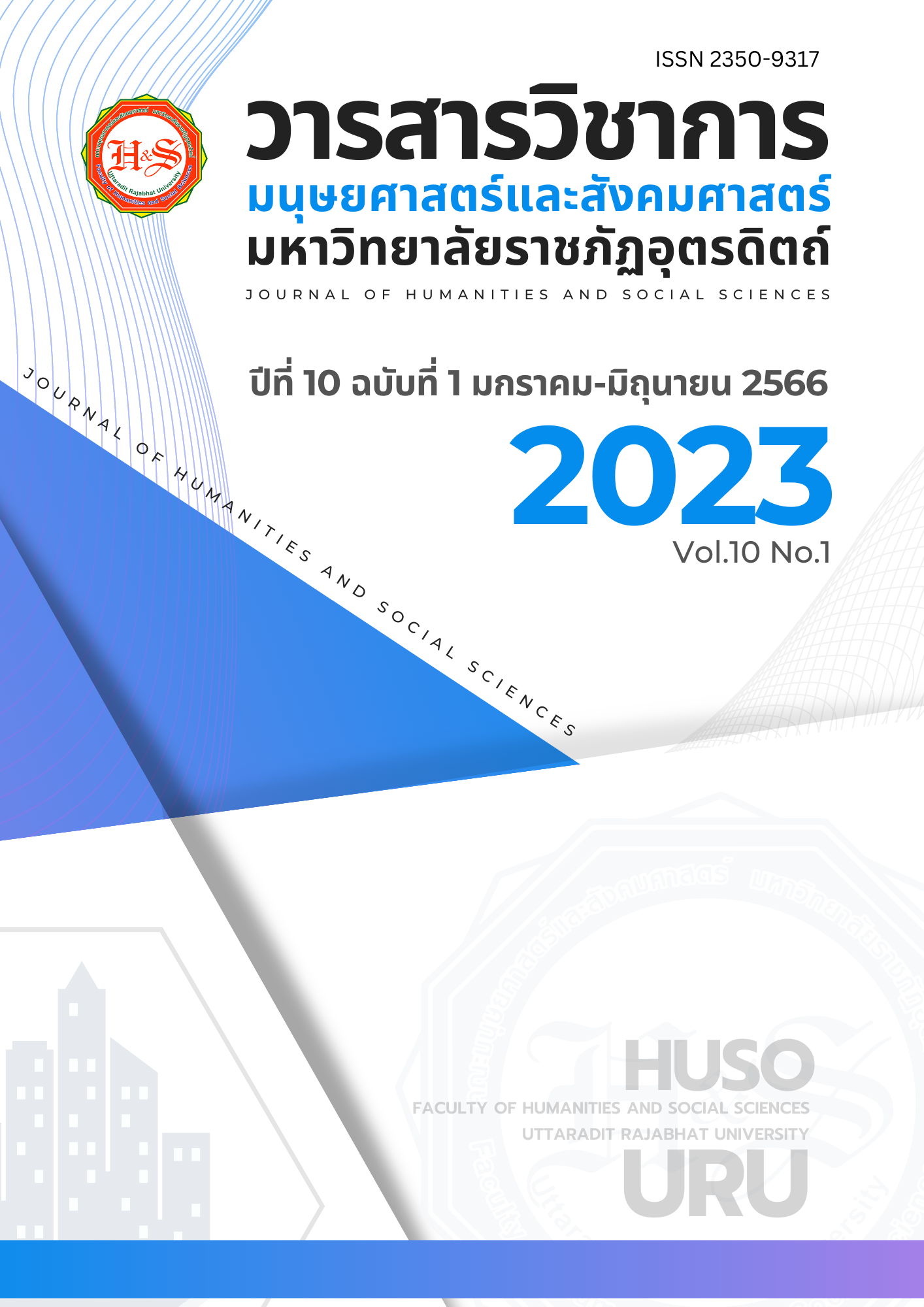Lesson Learn and Development Mechanism towards Create Innovation for Solid Waste Management in Bung Wang Ngiu Community, Village No. 1, Pa Sao Sub-district, Mueang District, Uttaradit Province
Keywords:
Lesson Learn, Mechanism of development towards innovation in solid waste managementAbstract
Abstract
The research " Lesson Learn and Guidelines development project innovation in the community in Ban Ngio Ngam community, Pao Sao-district, Mueang Tourism District, Uttaradit." aims to lesson learn from the waste management work of Ban Bung Wang Ngiu Community, Village No. 1, Pa Sao Sub-district, Meng District, Uttaradit Province and Propose a development mechanism towards create innovations in solid waste management in Bung Wang Ngio community, Village No. 1, Pa Sao Sub-district, Mueang District, Uttaradit Province. Methods of acquisition and consumption is leader community boardbehavior of Ban Ngio Ngam community .This research is qualitative research using the In-depth Interview which was created by the researcher through literature review. Various information covers both personal factors and content. The informant is the leader of the community waste management committee of 40 people. The results of the research revealed that the committees come from many sectors. whether it is a community leader Community, government agencies and the private sector working together An important mechanism for operation is the “community committee” that has a clear plan for implementation by giving importance to shared awareness in the community relying on “communication” activities as an important aspect of reaching and Collaborate in the community and lead to acceptance and being part of community solid waste management by using social tools such as individuals, families, groups, organizations, communities, government agencies. private organization Working networks, etc., are important mechanisms for driving work. Engaging From the lessons learned, it has led to development guidelines to create innovations in Chomchon Bung Wang Ngiu, Village No. 1, Pa Sao Sub-district, Mueang District, Uttaradit Province. by using participatory mechanisms in community management
Resulting in loss of food balance Therefore causing Thai people in urban society to have nutritional problems
References
กรมการปกครอง . 2543. คู่มือการจัดการขยะมูลฝอยเพื่อนำกลับมาใช้ประโยชน์ .ส่วน พัฒนาท้องถิ่น. กรุงเทพฯ.
ถนอม บริคุต,สอ. (2557). ทฤษฎีส่วนประสมทางการตลาด. ค้นหาข้อมูลเมื่อวันที่ 23 กรกฎาคม 2562, จาก https://fifathanom.wordpress.com/.
ธนพร พนาคุปต์.2538. พฤติกรรมการจัดการขยะมูลฝอยในครัวเรือนของประชาชนที่ อาศัยในเขต เทศบาลเมืองปัตตานี. กรุงเทพมหานคร : วิทยานิพนธ์ปริญญาโท มหาวิทยาลัยมหิดล.
สุนีย์มัลลิกะมาลย์ และ นันทพล กาญจนวัฒน์. (2543) การมีส่วนร่วมของประชาชนในการ จัดการขยะชุมชน. กรุงเทพฯ:รายงานการวิจัยสถาบันวิจัยระบบสาธารณสุข.
ณีรวรรณ ศรแผลง. (2552). การพัฒนาการมีส่วนร่วมของประชาชนในการจัดการมูลฝอย :กรณีศึกษา เทศบาลต าบลเชิงทะเล อำเภอถลาง จังหวัดภูเก็ต. วิทยานิพนธ์ วิทยาศาสตรมหาบัณฑิต คณะการจัดการสิ่งแวดล้อม มหาวิทยาลัยสงขลานครินทร์, สงขลา.
เทศบาลตำบลป่าเซ่า. (2559). ข้อมูลพื้นฐาน. Retrieved 12 มิถุนายน 2559, fromhttp://www.pasaouttaradit.go.th/index.php?op=staticcontent&id= 8410
ประพจน์ สั่งหมื่นเหม้า. (2553). แนวทางการจัดการขยะมูลฝอยของเทศบาลตำบลบ้าน ค้ออำเภอโนนสัง จังหวัดหนองบัวลำภู. วิทยานิพนธ์ศิลปศาสตร์มหาบัณฑิต สาขาวิชานโยบายสาธารณี มหาวิทยาลัยราชภัฏเลย, เลย
เทศบาลตำบลป่าเซ่า. (2564). ข้อมูลหน่วยงาน. ออนไลน์. สืบค้นวันที่ 10 กรกฎาคม 2564 จาก http://www.pasaouttaradit.go.th/index.ph
Downloads
Published
How to Cite
Issue
Section
License
Copyright (c) 2023 Journal of Humanities and Social Sciences Uttaradit Rajabhat University

This work is licensed under a Creative Commons Attribution-NonCommercial-NoDerivatives 4.0 International License.
บทความเป็นลิขสิทธิของคณะมส. มรภ อต.



